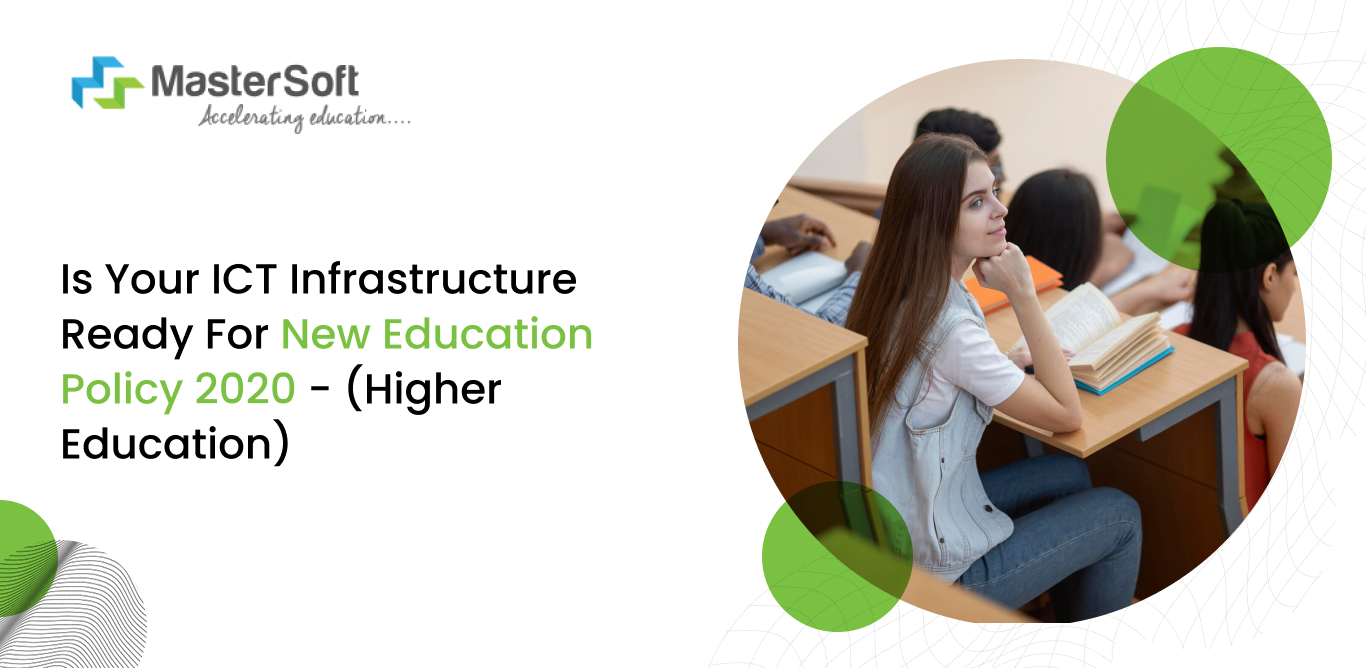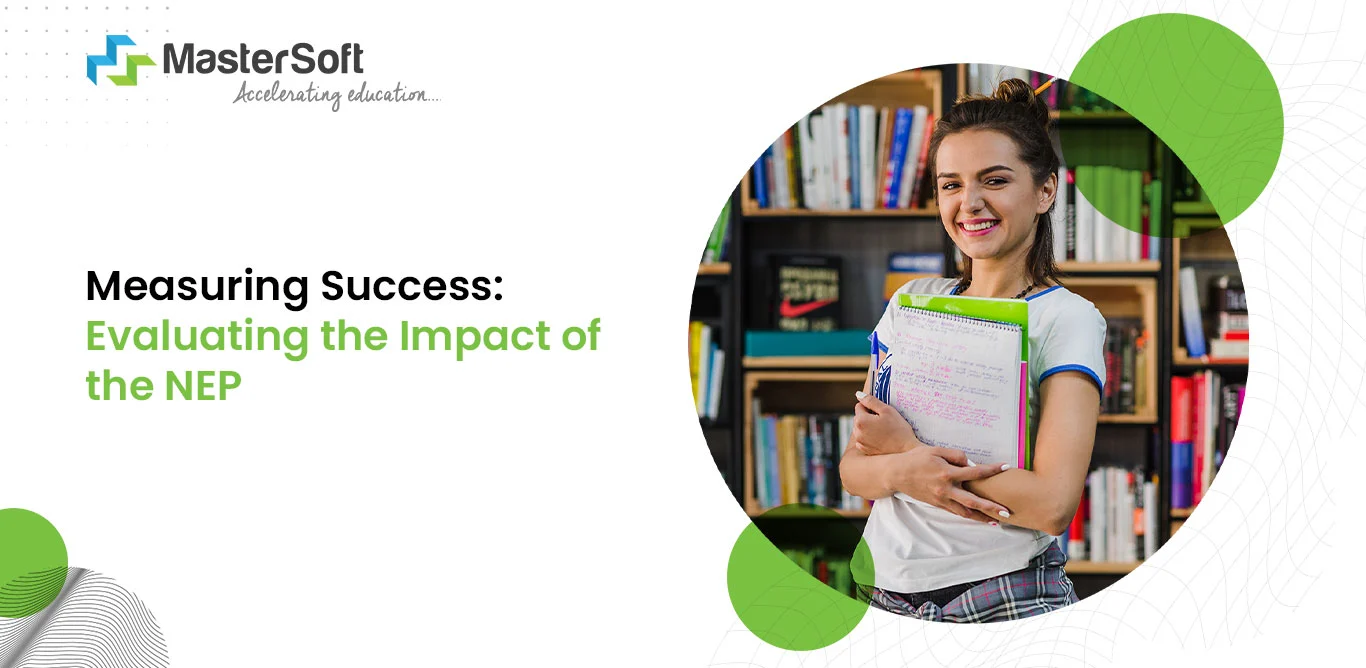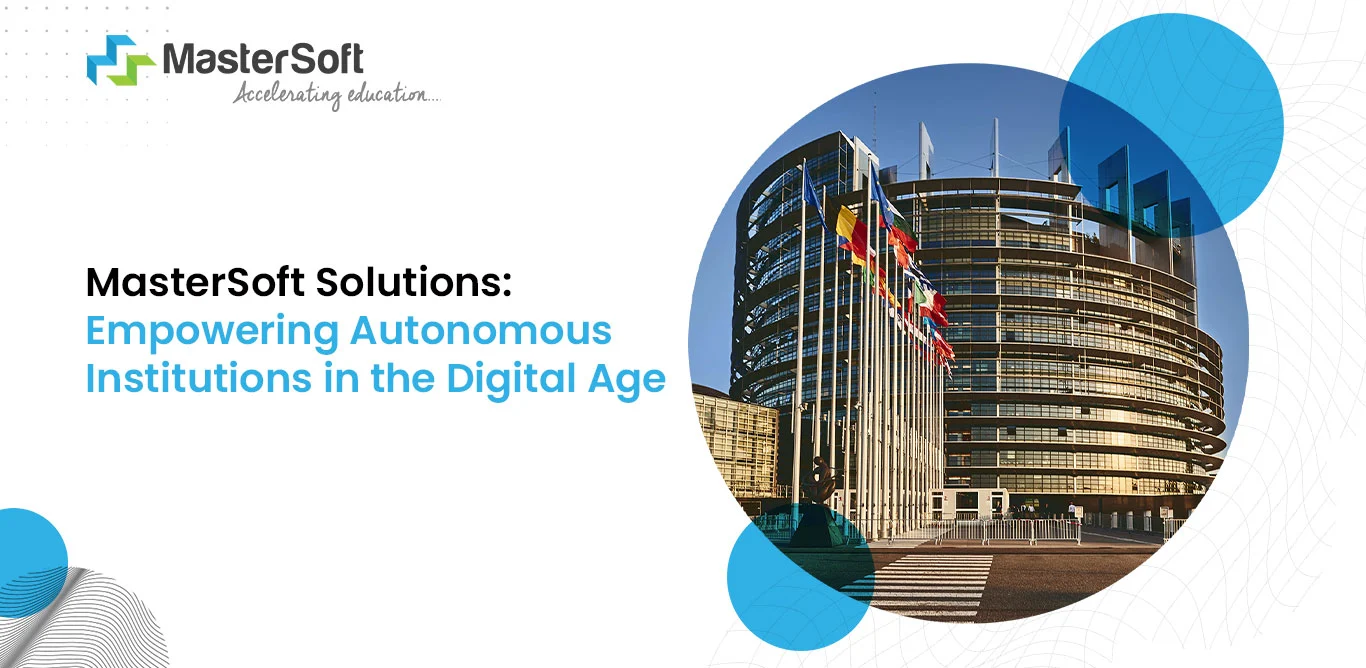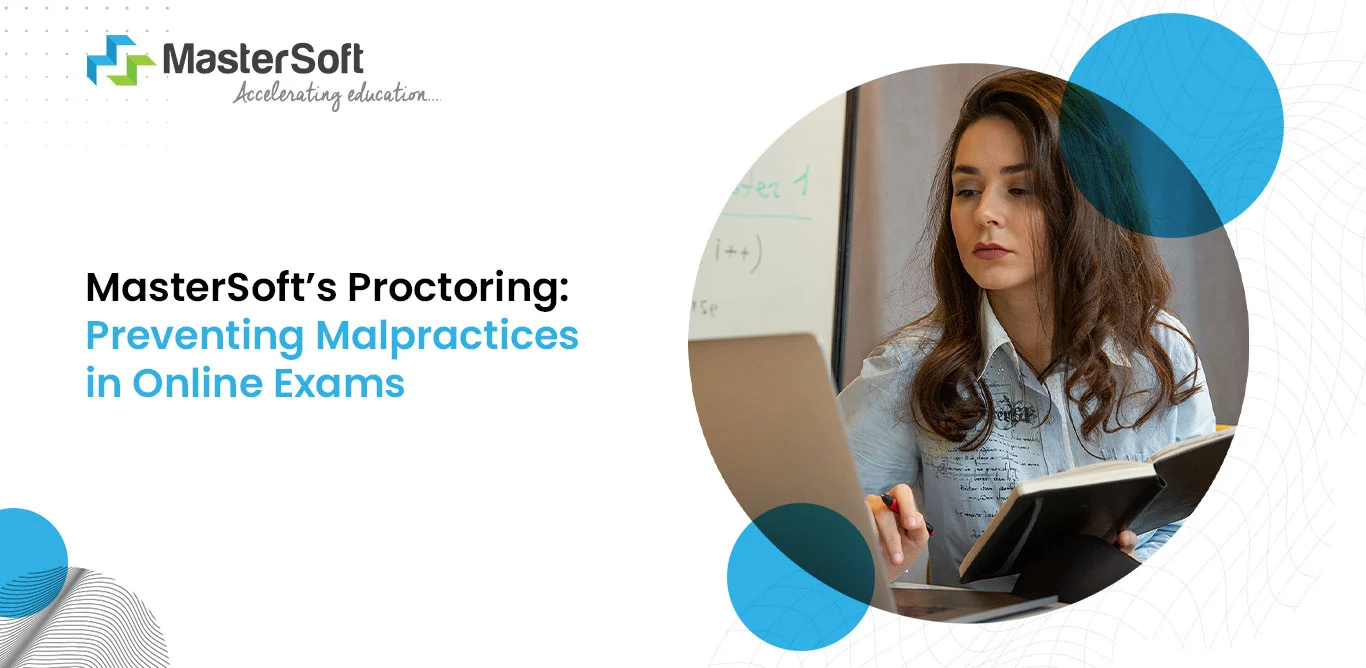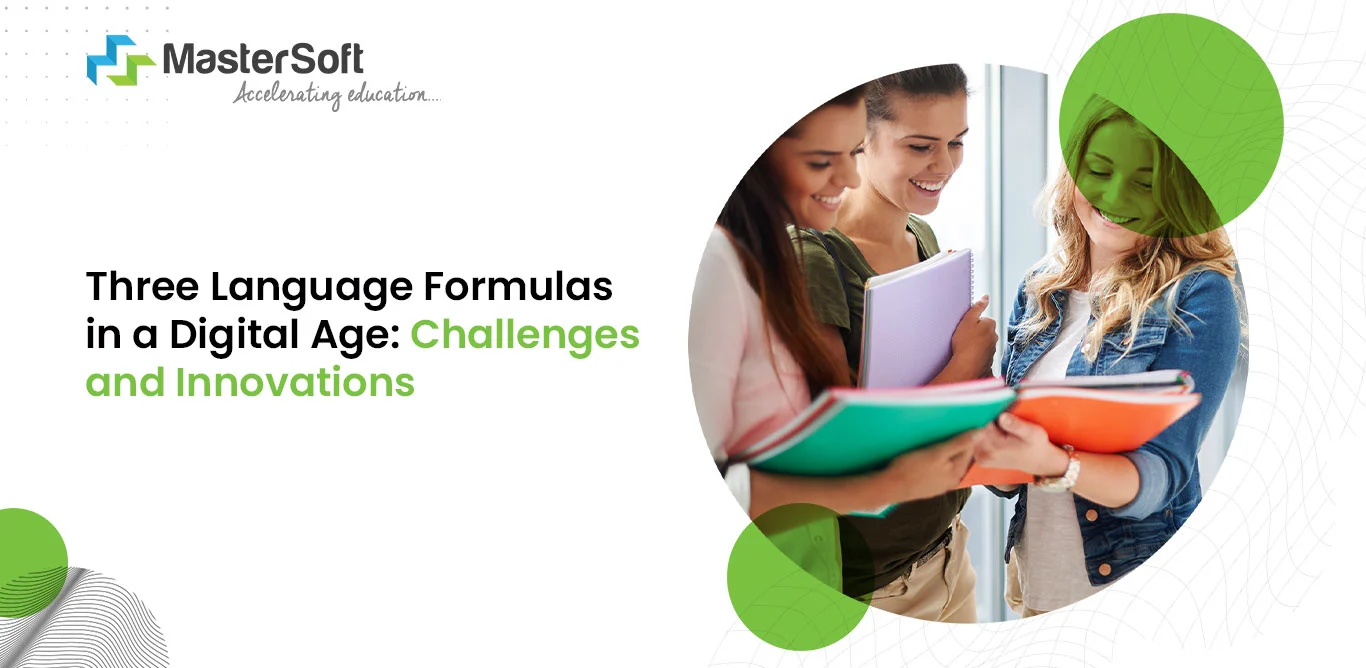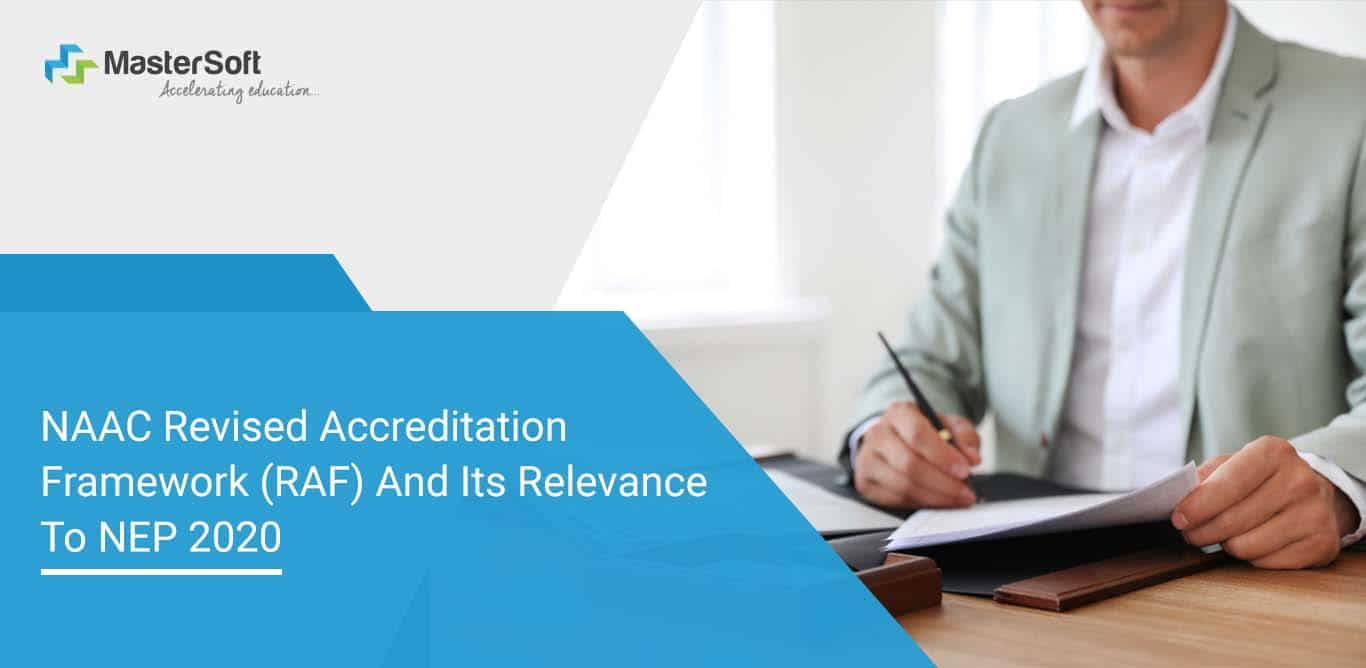22, October 2021
Futuristic Approach Towards Education
The NEP aims to increase the Gross Enrolment Ratio in higher education including vocational education from 26.3% (2018) to 50% by 2035.This is likely to increase the admissions in colleges and hence increase work for the faculty members in terms of admissions, fees collection, teaching, exam evaluation and several other tasks.
Autonomy in Institutes
The NEP 2020 encourages the colleges to become autonomous. An autonomous college is required to carry out college activities independently beginning from curriculum, to teaching methods and conducting exams. These colleges have to process a large number of student data and reports from over several years. This data is confidential and very important for the colleges, hence should be handled with high security. The institutes should be able to store and retrieve it at any time required. This gives rise to the need for a software solution which can handle and compile all these tasks and processes of the institute.
Further, several institutes are applying for accreditation as it has been made compulsory by the government for the colleges to get accredited by the year 2022. The accreditation process requires handling large amounts of data and generating reports as per the requirements. Further, for the colleges to get accreditation, they must offer the highest quality of education as per the education policy along with maintaining the technology infrastructure and innovation in the institutes. The institutes will look forward to offering distance education to the students. Hence, managing complex procedures and innovations in ways of teaching require a high quality ICT infrastructure in the colleges to manage, and store the data in most efficient ways.
The institutes will look forward to offering distance education to the students. Hence, managing complex procedures and innovations in ways of teaching require a high quality ICT infrastructure in the colleges to manage, and store the data in most efficient ways.
“All assessment systems shall also be decided by the HEI, including those that lead to final certification. The Choice Based Credit System (CBCS) will be revised for instilling innovation and flexibility” - NEP 2020
NEP 2020 Requirements
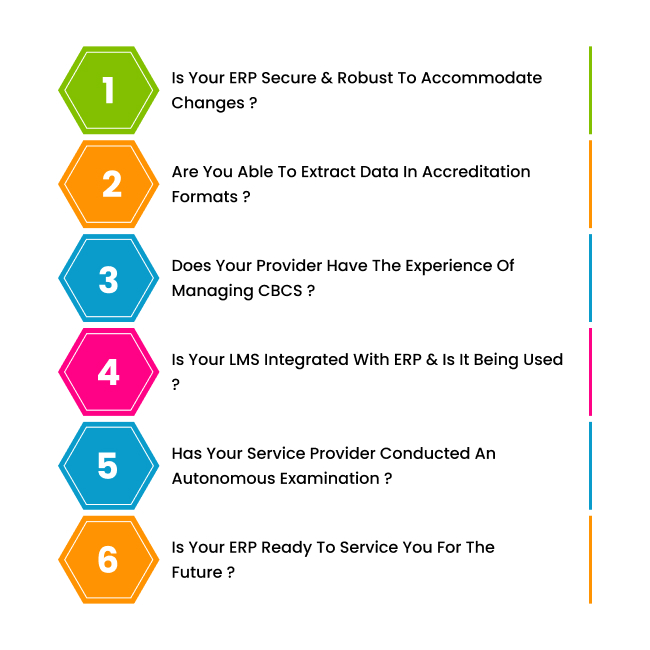
Many institutes are likely to implement the blended learning methods which involve a combination of classroom teaching with online lectures. Also, the introduction of a Academic Bank of Credits in the NEP 2020 has given rise to collaborative working among the colleges and universities to offer courses from different institutes to the students and thus manage their credits accordingly. Hence, the futuristic way of education focuses on major integration of technology in education.
“Through a suitable system of graded accreditation and graded autonomy, and in a phased manner, over a period of 15 years, all HEIs in India will aim to become independent self governing institutions pursuing innovation and excellence” - NEP 2020
- Is your ERP Secure & Robust to accommodate Changes ?
- Are you able to extract Data in Accreditation Formats ?
- Does your provider have the experience of Managing CBCS ?
- Is your LMS integrated with ERP & is it being used ?
- Has your service Provider conducted an autonomous Examination ?
- Is your ERP ready to Service you for the Future ?
If not, you are in need of a solution which-
- Manages your student data, fees structures, admission processes, examination and accreditation data properly for several years
- Conducts all the Streamlining Activities and generates reports in desired formats
- Gives transparency across Departments
- Helps you with Accreditation data management, gives access to multiple stakeholders, and safely holds tons of data.
- Helps you with conducting online assessment and performance evaluation
- Most Importantly has a futuristic mindset to help you navigate through this tech adoption period.
As per the NEP 2020, technology in education shall be given major emphasis. It involves several disruptive technologies which are likely to bring major changes in the ways of teaching and learning in the institutes. The vision for NEP 2020 is “Technology use and Integration” in order to give a pathway for the students to make India a digitally empowered society and knowledge economy around the globe.
Further, the integration of ICT makes education accessible to people in remote areas of the country. It helps the institutes in maintaining the standards of NAAC accreditation. The technology infrastructure has a major focus on eliminating language barriers, streamlining educational management and planning, and increasing access to Divyang students. Hence, several schools are required to plan their upgrades and showcase the minimum infrastructure that is required for the new education system.
If you are a college preparing yourself for the new education policy, here are the infrastructure requirements you must ensure-
1. Research and Implementation of Disruptive Technology in Higher Education
Disruptive technologies have been used in several industries and the education sector is no exception. Following disruptive technologies have been making major changes in the institutes over the past few years.
Online Learning
Several institutes are adopting distance learning and e-learning which has completely changed the ways of delivering education to the students. It provides access to education for the students in remote areas, unprivileged individuals, disabled students, and others.
Chat-Based Collaboration Platforms
The introduction of a chat-based, video calling application, which gives a provision for screen sharing the presentations or digital boards where the teacher is teaching is gaining large importance among the colleges. It allows people from all over the world to participate in the lectures and gain knowledge.
Competency-Based Education
Every student has a different pace and capacity for learning. Competency-based education gives provision for every student to learn at their own pace.
2. Development of E-Contents
The development of digital content in the form of presentations or videos, and animated sketches based on one particular topic is an important part of the NEP 2020. The institutes and colleges need to develop strategies to deliver the content to the students in such a way that the students engage with it. To develop such content, the institutes are required to train their teachers on content-ICT-pedagogy integration, which is based on the new pedagogical and curricular structure given in the National Curriculum Framework handbook.
Further, introducing new courses and developing their materials to offer the best possible materials to the students is also an important part of development.
3. Constant Capacity to Customize Architecture
There are new updates and courses added by the institute regularly to offer better opportunities to their students. Hence, the college needs to be ready to occupy all the changes in the structures of the website, in the ways of teaching or learning for improving the learning outcomes. Further, the college should have the ability to train the teachers in an efficient way so that same is reflected upon the students.
Further, other requirements of the courses in terms of assignments, practical and equipment required to carry out these projects can also need expansion and up-gradation.
4. Design Online Courses
The switch from traditional teaching methods of pen and paper to online teaching is a major change especially for the students who have been studying in schools and colleges for several years. It is easy to get isolated and feel alone doing a class in the digital form. Several students lose interest and give up on the courses in between. Hence, it is important to create and design the courses in such a way that the students are engaged in them.
The online platforms give the liberty to explain a concept in several different ways such as videos, PPTs, animations, audios, stories, and others. Using the best strategy based on the age group and geography of the students can build their interest and bring them back to attending classes. Further, the students are evaluated using online assessment tools for granting certificates and degrees.
5. Distribution of Digital Content
The institutes need to be ready for spreading the digital content in such a way that it is accessible to every student in the easiest way possible. The students attend lectures through digital mediums such as mobile applications for video calling. These lectures are recorded by the teachers and the students can access them anytime.
Further, the presentations and concept videos that are created for the students can also be made available in the study materials which are uploaded on the learning management system that is used by the institutes. The institutes can implement a digital library and the students can get access to it using the online portal. Moreover, they can also get access to e-books and PDFs in cases where the students have no access to a library near them. The e-content created should be available to all the students taking formal as well as informal education.
6. Academic Bank of Credit
It is likely that all the institutes do not have the infrastructure or capital to make the college ready to offer education based on NEP 2020. Hence, the colleges can work in collaboration with each other where the students have the provision to take up different courses from different institutes. The government has also introduced the credit-based system named ‘Academic Bank of Credit’ (ABC) to allow the transfer of credits from one institute to another as per the courses. The state-level colleges can collaborate and coordinate with each other so that all of them can converge their efforts and offer best practices to the students.
How can MasterSoft Help the Institutes Implement NEP 2020?
MasterSoft ERP solution is the most trusted company offering technologically advanced software and tools for the institutes to manage their activities and processes. Having served NITs, Central & State Universities we understand your requirements and can help you achieve automation. The learning management system by MasterSoft can help the institutes in keeping track of students’ learning and curriculum as well as help them to facilitate distance education programs more efficiently. The company provides solutions that can maintain data, conduct and assess online exams and improve teaching methods digitally.
Support your ICT infrastructure with MasterSoft, click here to know more
Mobile: 08448010216
Email:info@mastersofterp.com

